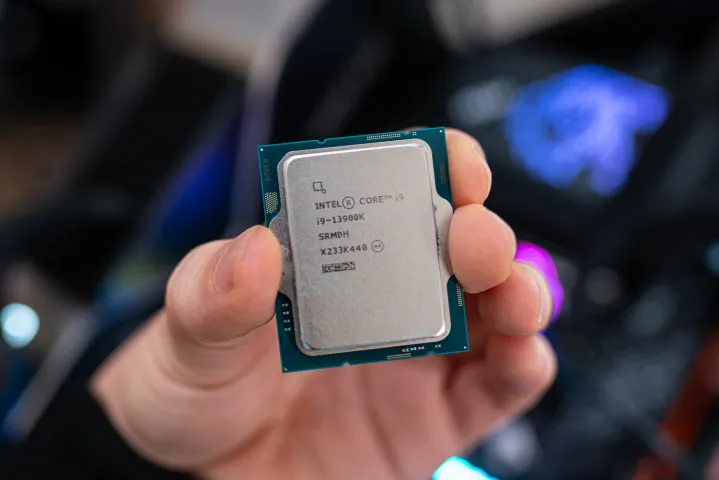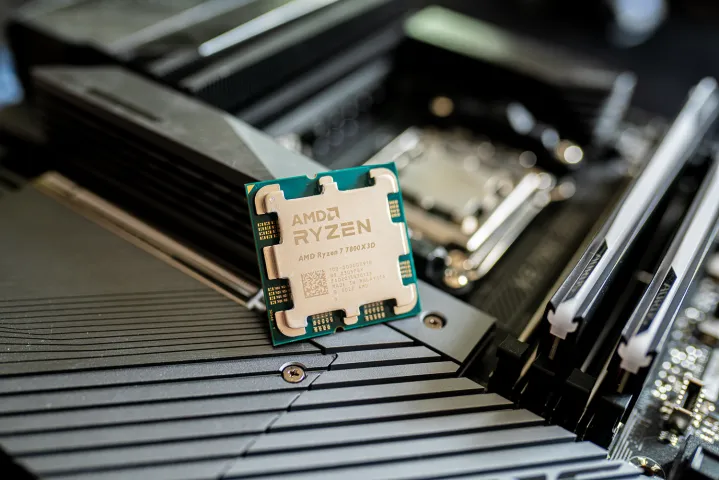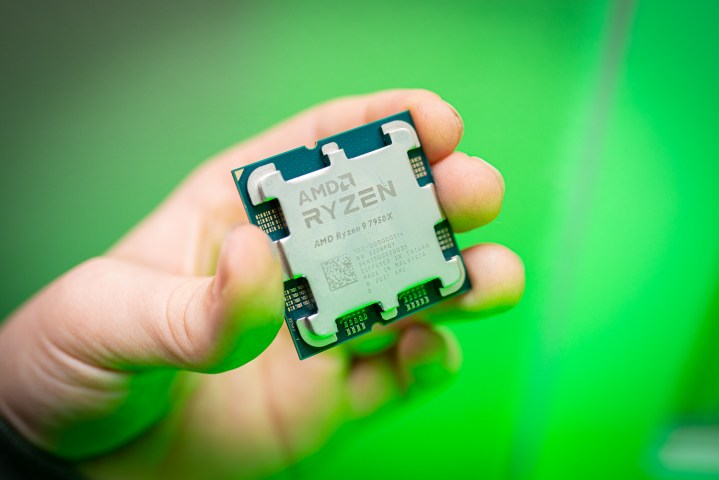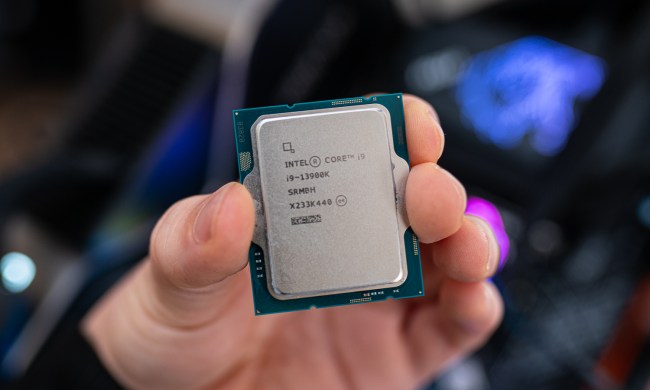
Intel’s Core i9-13900K is one of the best processors you can buy. The 24-core behemoth can rip through productivity workloads with ease, and it’s easily one of the fastest gaming CPUs money can buy. Even with so much power under the hood, it’s not the right choice for everyone.
Supreme power comes at a supreme cost, and for the Core i9-13900K, that comes in the form of heat and power draw. In addition, a recent wave of instability has hit Intel’s high-end CPUs like the Core i9-13900K, making alternatives a bit more attractive.
Although you should keep the Core i9-13900K on your shortlist, there are several other CPUs to keep in mind when upgrading your gaming PC. Here are some of our favorites.
AMD Ryzen 7 7800X3D

The Ryzen 7 7800X3D can’t hold a candle to the Core i9-13900K when it comes to productivity workloads, but AMD’s chip shoots ahead with its gaming process. The humble eight Zen 4 cores are speedy enough for high-end gaming, but it’s AMD’s impressive 3D V-Cache tech that stands out. In some titles, such as Far Cry 6, it offers massively improved performance.
This is the CPU you should buy if you’re mostly concerned with gaming. The extra cache doesn’t apply in all, or even most, games, but you’ll appreciate the boost in performance when it comes up. Behind the cache, you’re still getting a great gaming CPU that can go toe-to-toe with the Core i9-13900K. On average, we found that the Core i9-13900K is around 10% slower than the Ryzen 7 7800X3D at 1080p, in fact.
On top of that, the Ryzen 7 7800X3D is cheaper. You’ll find the Core i9-13900K for around $500 at the time of writing, while AMD’s chip is available for around $400 — and sometimes even less. Add on the lower power demands, a generally cooler package, and the AM5 platform, and the Ryzen 7 7800X3D looks like a great deal for gamers.
That only holds up if you primarily game on your PC, however. As mentioned, the Core i9-13900K is an absolute monster at productivity tasks, and the Ryzen 7 7800X3D sometimes only reaches half the heights Intel can with its flagship CPU. This is a CPU for gamers above all else.
Intel Core i9-12900K

Although the Core i9-12900K and Core i9-13900K share the same socket and chipset support, the 13th-gen part is much faster. Based on our testing, the Core i9-13900K provides a single-core advantage of about 13% and a multi-core advantage of close to 47%. That’s a good argument for the Core i9-13900K, but the 12th-gen CPU still has its place.
Because of the age of the Core i9-12900K, you can get it for a dirt-cheap price. At the time of writing, it’s available for under $300, and that’s the price you’ll generally find it at. Retailers will often bundle the CPU with a motherboard for a low price to clear the shelves as well, so it’s not uncommon to find the former flagship and a high-end motherboard for around $450.
Although the Core i9-13900K clearly has a lead in performance, the gap isn’t always large. For example, in Photoshop, the Core i9-12900K is 20% behind the 13th-gen CPU, but that gap shrinks to only 10% in Premiere Pro. In games, the difference is usually only a few frames, which is a performance gap that disappears as you climb to higher resolutions.
The Core i9-12900K is still a great CPU in 2024, even if it’s not quite as fast as the newer Intel options. The good news is that it’s very inexpensive, and it’s managed to skirt the the stability issues of Intel’s recent CPUs. On top of that, it uses the same socket as Intel’s 13th-gen and 14th-gen parts, so you’re set up for an upgrade to a CPU like the Core i9-14900K in the future.
Intel Core i7-13700K

It might seem obvious that the Core i7-13700K is an alternative to the Core i9-13900K as a less powerful, cheaper sibling, but that undersells just how powerful Intel’s i7 really is. The 16-core CPU comes with eight performance (P) cores and eight efficient (E) cores. Meanwhile, the Core i9-13900K comes with eight P-cores and 16 E-cores. What really matters is that both CPUs come with eight P-cores.
There are some apps that can take advantage of the massive core array available on the i9 CPU, but many apps run just fine with the Core i7-13700K. In Premiere Pro and After Effects, for example, the Core i7-13700K posts identical results to the more expensive i9 option. And in games, the two CPUs are basically indistinguishable.
You’re getting most of the performance with the Core i7-13700K, just for much less. The CPU comes in around $340, saving you close to $150 compared to the Core i9-13900K. If you opt for the Core i7-13700KF — the same CPU, minus integrated graphics — the price gap grows to $200.
If you’re looking to pick up a CPU now, the Core i7-13700K doesn’t seem to be affected by the recent instability on Intel’s higher-end options, either. The Core i7 range doesn’t get a lot of love because of its awkward positioning, but the Core i7-13700K makes a strong argument for picking up one of Intel’s CPUs in this class.
AMD Ryzen 9 7950X

AMD’s counter to the Core i9-13900K is the Ryzen 9 7950X. The 16-core CPU is an absolute monster in just about any app, trading blows with the Core i9-13900K depending on which workload you look at. In Geekbench 5, we found that the two CPUs were evenly matched in multi-core performance, despite the Core i9-13900K’s raw core advantage.
That translates into real apps, too. In Handbrake, the Ryzen 9 7950X completed a transcode in the same time as the Core i9-13900K, and in Premiere Pro, it was within less than 1% of Intel’s CPU. Gaming is where the Ryzen 9 7950X really shines, however. Although the Ryzen 7 7800X3D is still a better choice if gaming is your primary focus, the Ryzen 9 7950X managed to outpace Intel’s CPU in Red Dead Redemption 2, Far Cry 6, and Cyberpunk 2077.
The major downside of the Ryzen 9 7950X is the price. At $550, it’s still more expensive than the Core i9-13900K by around $50 to $70, and with largely similar performance. However, it’s also based on AMD’s AM5 platform. Intel is done with the LGA 1700 socket, so if you pick up the CPU now, you’ll need to move to a new platform when it’s time to upgrade. AMD says it will continue supporting AM5 through 2025 and beyond, setting you up for a future upgrade from the Ryzen 9 7950X.



